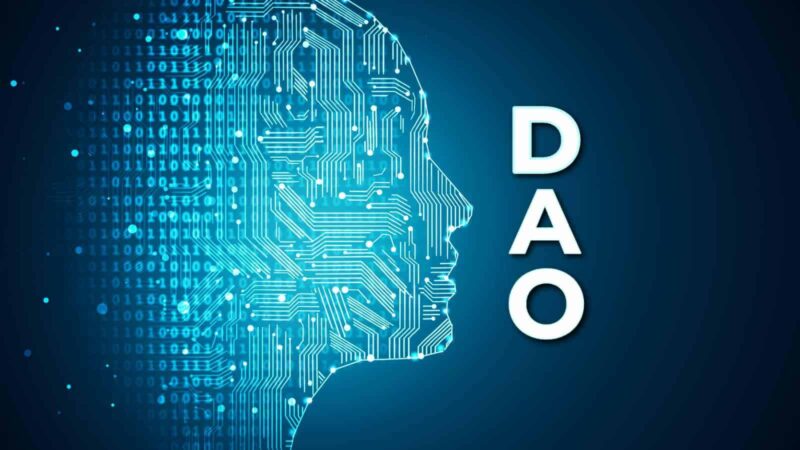Decentralized Autonomous Organizations (DAO) have emerged as a disruptive concept in the world of cryptocurrencies, aiming to redefine governance and collaboration. By leveraging blockchain technology and smart contracts, DAOs create autonomous entities that operate without the need for traditional intermediaries. This article delves into the core principles, functionalities, benefits, and challenges of DAOs, highlighting their potential impact across industries.
Understanding DAO
A New Era of Governance DAOs are virtual entities governed by code and executed through smart contracts on a blockchain. They operate based on principles such as decentralization, transparency, and consensus-driven decision-making. Unlike centralized organizations, DAOs are controlled by their token holders, who collectively participate in decision-making through voting mechanisms.
Core Features and Functionality
- Token Governance: DAOs employ tokens as a means of participation and governance. Token holders possess voting rights and influence decision-making processes.
- Proposal Systems: DAOs facilitate proposal systems where token holders can suggest, debate, and vote on ideas or initiatives that affect the organization.
- Rewards and Incentives: DAOs often incentivize active participation by distributing tokens as rewards, recognizing and encouraging contributions to the community.
Do check out: The Metaverse: A New Dimension of Digital Reality
Benefits of DAO
- Decentralization: DAOs eliminate the need for central authorities, enabling participants to directly influence organizational decisions.
- Transparency and Accountability: DAO actions and transactions are recorded on the blockchain, ensuring transparency and reducing the risk of corruption.
- Efficiency and Automation: Through smart contracts, DAOs automate governance processes, streamlining decision-making and reducing bureaucratic inefficiencies.
Potential Applications
- Governance and Voting: DAOs empower communities to collectively shape the trajectory of decentralized protocols and projects.
- Funding and Investments: DAOs act as crowdfunding platforms, enabling participants to pool resources and collectively invest in projects or startups.
- Content Creation and Curation: DAOs facilitate the fair distribution of value by rewarding creators and curators of digital content.
Challenges and Considerations
- Legal and Regulatory Frameworks: DAOs operate in a legal gray area, and addressing regulatory compliance remains a challenge due to their decentralized nature.
- Governance Risks: Achieving consensus among diverse stakeholders can be complex, requiring careful design to ensure fair participation and decision-making.
- Security and Vulnerabilities: DAOs face risks such as hacking, smart contract vulnerabilities, and potential financial losses.
Conclusion: Decentralized Autonomous Organizations (DAOs) are reshaping governance and collaboration in the crypto space. With their ability to eliminate intermediaries, enhance transparency, and empower stakeholders, DAOs hold tremendous potential across industries.
However, navigating regulatory challenges and addressing governance risks are crucial for wider adoption. As the crypto ecosystem evolves, DAOs are poised to play a significant role in shaping the future of decentralized governance and economic systems.










